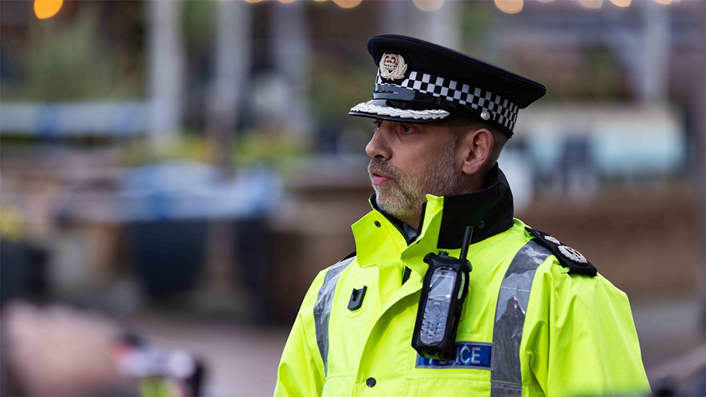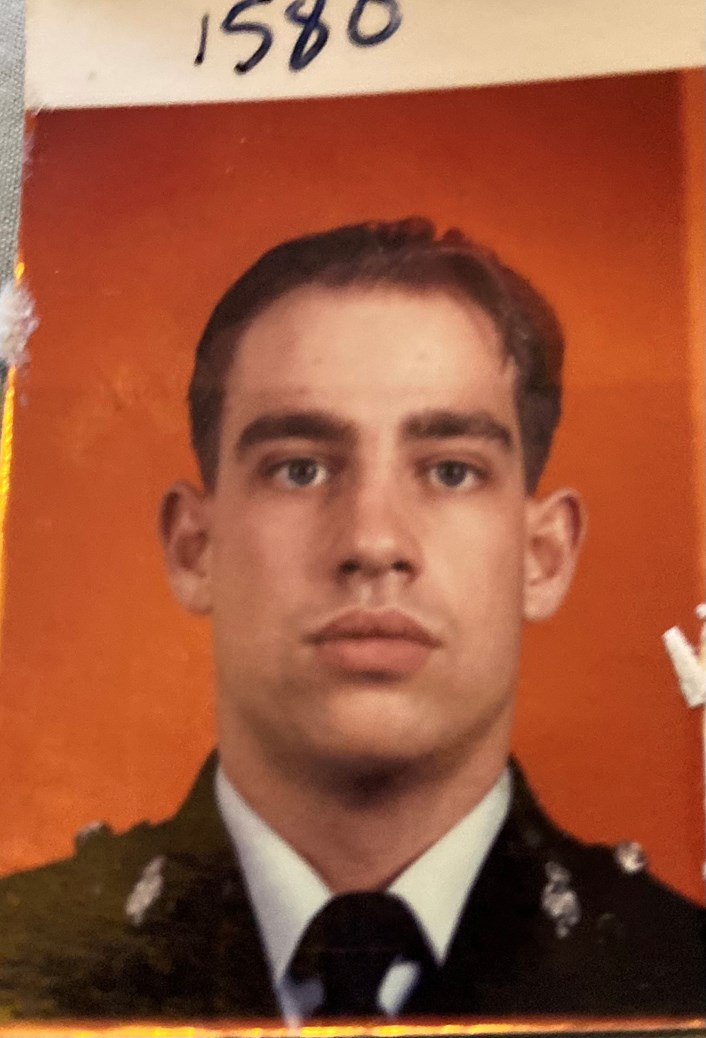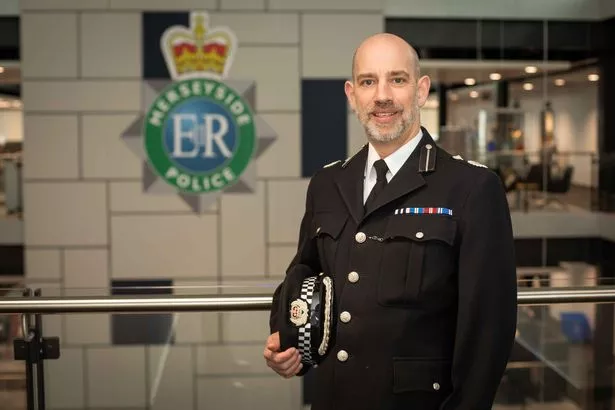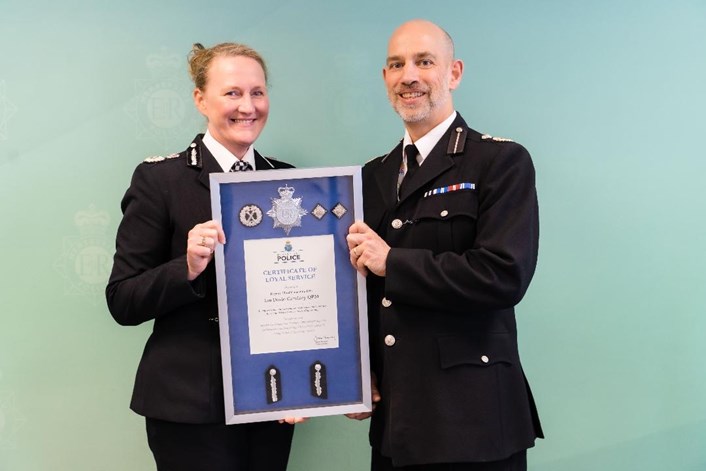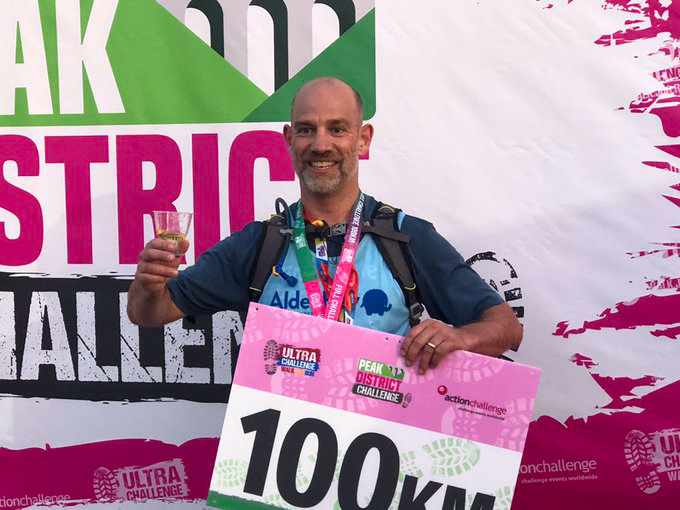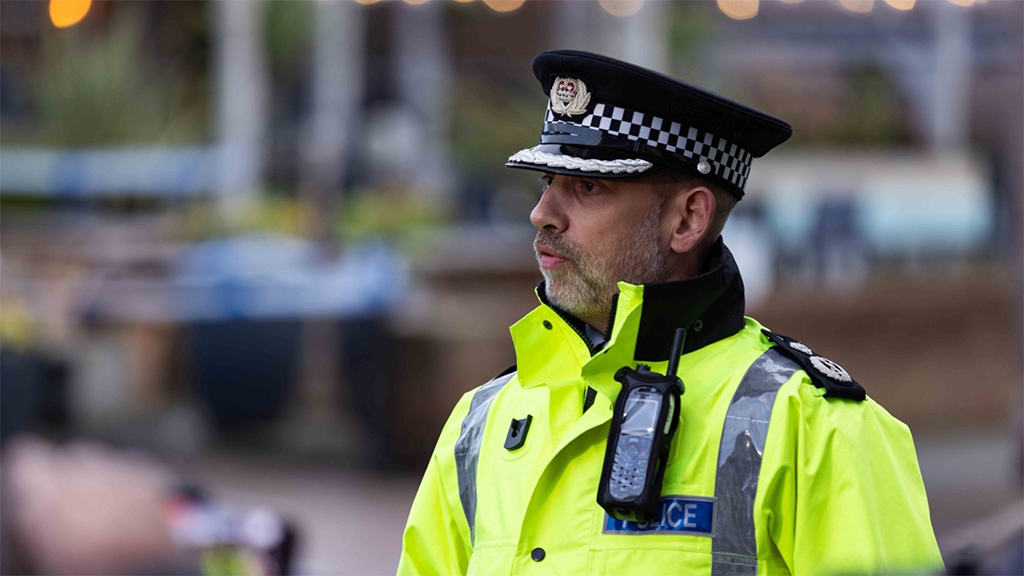
28 Apr 2023
Protecting children from the most abhorrent abuse
As he approaches his retirement, Deputy Chief Constable Ian Critchley reflects on thirty years spent in policing, and in particular the work he has done to combat child abuse in all forms.
Imagine being in a job, where every day you come in to work and you deal with some of the most distressing and horrific imagery on the internet, that of children being sexually, physically, or emotionally abused.
This is the reality for hundreds of brilliant police officers and staff who investigate and track down child abusers. The work they do brings 800 online offenders to justice every month and safeguards 1,200 children. These officers and staff then return home to their own partners, families and children and carry the weight of this imagery with them. The impact of this cannot be underestimated. Without them and many other colleagues and partners who commit to working in the area of child protection, vulnerable children would continue to be abused. I am the NPCC lead for child protection and believe me when I say that everything we do is to keep children safe.
To try and give you an idea of why this job is so important to me, recent figures tell us that one in six girls and one in 20 boys experience child sexual abuse before the age of 16. The NCA state that between 550,000 to 850,000 UK based individuals are posing a varying degree of sexual risk to children. Child abuse offences have increased at a faster rate than overall recorded crime since 2014. A huge factor in this is advances in technology. If, like me, your first computer was a Commodore 64, then you will know that it held 64KB of data. To put this in perspective what we are up against now is that the average data ingested on an offender’s phone is 2.1 TB, an approximate increase of 32 million times more data.
Retirement is often a time to reflect on your journey in policing, the highs, the lows and everything in between. I hand in my warrant card to Merseyside at the end of this month. I feel guilty leaving, I have loved my job, the privilege I have had to work with brilliant colleagues who do the most amazing, courageous work every day to keep the public safe. However, I am looking forward to spending time with my family after an exceptionally busy but rewarding 30 years.
I clearly remember the day I joined policing, having left Stirling University. I had no idea at the time what I was walking in to, but I knew I wanted to protect and help others. Policing wasn’t for me at that time what many people called their “vocation”. It took me 16 years to find my real purpose in policing when I became Head of Public Protection in Lancashire. Prior to this, there was little training in this arena - our first public protection unit only came into being in 2003.
It was a new world, nothing like the smoke-filled CID units that existed and I worked in as a detective in every rank, and it was tough in a very different way. Having been raised in what I considered then to be a pretty conventional loving family home, my eyes were opened much wider to the scale and extent of abuse of children that has no boundaries.
I vividly recall going to a baby death (one of twins) and the child shared the same name as my oldest who had recently been born. I attended hundreds of deaths in my career, many children, some child murders, and I saw the worst of what one human being could do to another, those post-mortems have never left me. I also went into some houses where there was nothing in the fridge, kids running in and out of the street, dog excrement on the floor, and a sense of hopelessness for what these children were growing up into.
There are many cases that have had an impact, no one less important than the next, some of which get national headlines, but many that don’t. I can recall the murder of Victoria Climbie in 2000, the killings of Jessica and Holly in 2002, the murder of Peter Connolly (Baby P) and in 2020 the National Panel Reviews into the murders of Star Hobson and Arthur Labinjo Hughes. These tragic losses of young lives serve as a reminder that the homicide of a child, like sexual abuse, is most likely to occur within the home. These are horrific crimes committed to unique children who should have been able to thrive in society and not be harmed by those who they should be able to trust the most.
Once I found my policing purpose, I had three girls of my own and life had changed. I had learned over time that all too often there was a child in need of care, compassion and someone to take them seriously, who wanted to cry out for help from the appalling abuse they had suffered. They need someone to stand up for them when they cannot. I didn’t see it in the early stages of my career, but as I progressed through the ranks and had my own family, it became a huge motivator for me.
There have been many significant moments in my policing career. In 2012, I gave evidence at the Home Affairs Select Committee looking at the national grooming scandals. Scandals where our service and others were being accused of putting community cohesion ahead of the protection of children.
I wrote the first national child sexual exploitation action plan working with CEOP (now the National Crime Agency) and I worked with the children’s commissioner on a report into group-based offending across the country. It’s been a difficult but worthwhile journey that has allowed me to not only apologise for the mistakes policing have made in the past but to move forward, support and help colleagues dedicated to protecting children and make a difference to every child who has been abused.
I will never shy away from the fact that group-based offending still goes on, it is still committed by offenders of all ethnicities and backgrounds. But as highlighted in the public inquiry, child abuse and exploitation takes many forms. Child on child offending makes up over 50 per cent of what we deal with. Some of this is of the highest harm, but much of it is now ‘normalised’, especially the sharing of images between teens. Policing, parents, partners, education, and the tech industry all have a role to play to help address some of these developing harmful behaviours.
I have been the national lead for child protection for two years, a role I am so passionate about. Whilst I may be retiring as an officer, I didn’t want to leave this role knowing how much there is still to do. After a short break I will be back to lead the child protection portfolio for the NPCC as a member of police staff.
My desire to help vulnerable children, those who cannot protect themselves from predators, and also make a stand for the incredibly brave adult survivors, will continue as will my commitment to bringing more offenders to justice. I will help to build out the new child sexual exploitation taskforce and lead on the ICCSA and HMICFRS recommendations. Anyone who works in this area, will understand why I cannot leave it behind.
I couldn’t write this blog without mentioning what I believe to be the greatest opportunity to tackle child abuse for a generation, the Online Safety Bill. It has the potential to make sure that the companies earning billions of pounds of profits fulfil their legal duty, as well as their moral duty, to protect children. The effectiveness of the legislation cannot be watered down by unchecked end to end encryption.
Child sexual abuse is an appalling crime.
— Home Office (@ukhomeoffice) April 19, 2023
The roll out of end-to-end encryption means the light that has shone on these crimes will be switched off.@NCA_UK Director General Rob Jones & @PoliceChiefs Ian Critchley on why social media companies must put child safety first. ⬇️ pic.twitter.com/w3QeMW6RWj
This is not a privacy argument; privacy can be achieved but it’s the Human Rights of all children that matters most, children who should be able to thrive in society not be harmed in the most appalling way.
My pledge moving forward is to do all in my power to prevent child sexual offences and give confidence to victims to come forward, whether the abuse happened today or 40 years ago. I want victims to come forward, safe in the knowledge that the response they receive will be one of empathy and compassion.
I am sure of one thing; my dedicated colleagues and I are ruthlessly determined to bring offenders to justice for these appalling crimes.
Deputy Chief Constable Ian Critchley, April 2023.
Note:
DCC Critchley will retire as a police officer in April 2023, before returning to lead the NPCC Child Protection portfolio as a member of police staff.
In his spare time Ian enjoys running and has participated in many marathons, triathlons and ultra marathons including a 100km run in the Peak District. He is passionate about supporting charities and regularly takes part in fundraising.
Contact information
Communications office
By phone: 0800 538 5058
By email: press.office@npcc.police.uk





